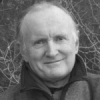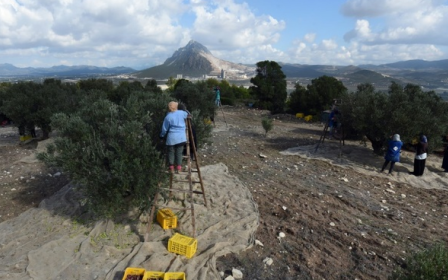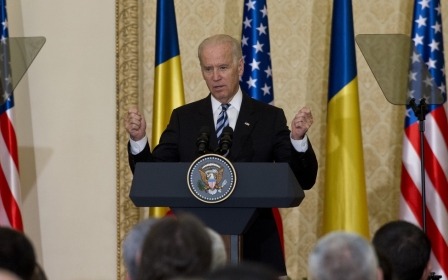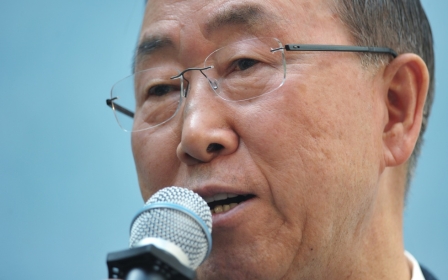Saudi paradox at Paris climate talks
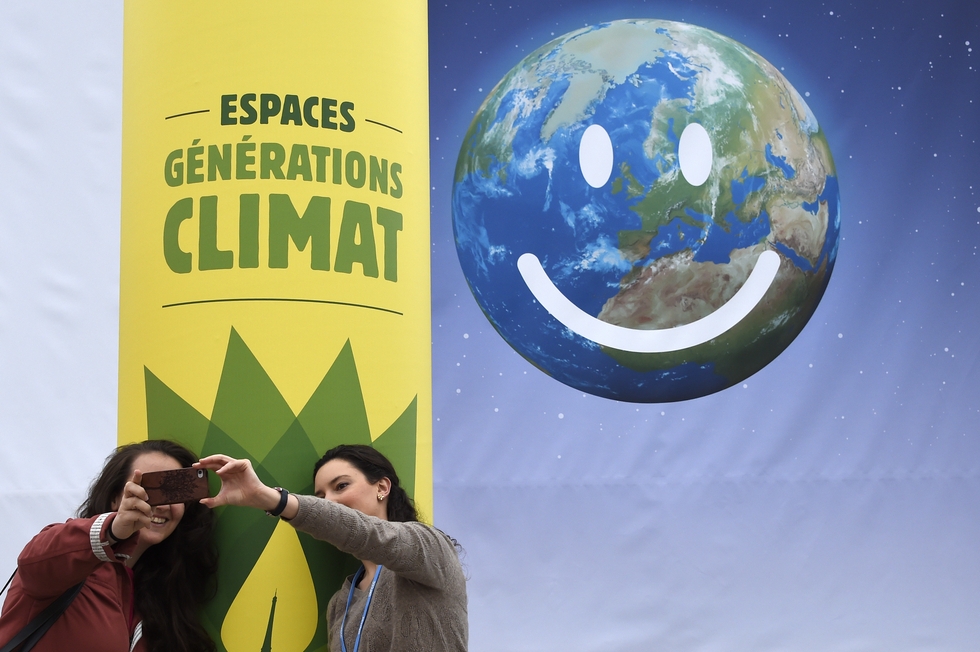
PARIS - The China pavilion is full of officials giving media briefings, photographers and TV crews falling over each other. Next door, the Peru and Indonesia delegations are busy treating climate delegates to music and dancing displays. Further along, at the US pavilion, a spokesperson is waving her arms in the air, giving a strident presentation on the perils of a warming planet.
By contrast, all is quiet and serene at the Gulf Cooperation Council (GCC) pavilion, one of the largest and most opulent in the giant hall which forms part of the small town which has been assembled here at Le Bourget, on the outskirts of Paris, for what are billed as the most important climate negotiations ever.
There’s no doubting the mood here: there’s a real push for an end to the age of fossil fuels and a transition to a decarbonised global economy by mid-century. Whether or not this will be achieved is the hundred trillion dollar question but if not, as we are repeatedly warned, we can look forward to an increasingly dismal – and very warm - future.
Amidst all the Paris negotiations – an event which is half serious discussion and half global circus - the Gulf states, and Saudi Arabia in particular, have a considerable credibility problem.
Saudi technicians take the occasional visitor to the GCC pavilion through a series of interactive displays: yes, they say, we are seeking to diversify our economy. We have big plans for renewable energy projects. We are concerned about how temperature rises will bring even more serious water shortages and multiple other adverse climate conditions to the country.
Yet Saudi Arabia, the world’s biggest oil exporter, is going in the opposite direction on climate change - continuing to pump out more and more oil – and in the process putting millions of extra tonnes of greenhouse gases into the atmosphere.
To say that it’s economic policy – centred on gaining as much revenue as possible from oil in order to deal with a rapidly growing black hole in its public finances – is at odds with what’s being discussed in Paris is a severe understatement.
What’s causing particular puzzlement here are Saudi Arabia’s plans regarding what are called in the UN’s climate jargon "Intended Determined Contributions" or INDCs - pledges more than 180 countries have made about how and when and by what volume each intends to reduce emissions of greenhouse gases, CO2 in particular.
Saudi Arabia has made a pledge to cut its emissions by an annual amount of 130 million tonnes of CO2 equivalent by 2030. The fact that the kingdom – not known for being overly concerned on climate change issues - even bothered to submit an INDC to the Paris meeting was greeted as a considerable step forward by some in the UN negotiating process.
The trouble is the Saudi commitment came with a strong caveat which effectively renders its pledge meaningless: the country would only fulfil its emissions reduction commitment, it said, if there is a “robust contribution from oil export revenues to the national economy”.
Furthermore Riyadh warned the Paris negotiators that it would not be bound by any agreement reached here that might create what it called an “abnormal burden” on the Saudi economy. If this happens, the country would act fast to roll back on any climate change commitments.
Climate Action Tracker (CAT), a UK-based independent organisation which has been monitoring and analysing the pledges submitted Paris, brands the Saudi position as paradoxical and inadequate.
The Riyadh approach seems to be, above all, to keep pumping out and exporting near record amounts of oil – and to hell with the consequences for the planet – and for Saudi Arabia itself.
CAT estimates that if the present high export policies continue Saudi emissions would certainly not fall – in fact they would increase by a whopping 158 percent above 2010 levels by 2030 – or 680 percent above 1990 levels.
Negotiators in Paris say the average global temperature rise by mid-century must be limited to 2C over pre-industrial levels: any more than that and the world will be faced with potentially catastrophic changes in climate.
The Gulf region is particularly sensitive to any rise in temperatures or changes in rainfall patterns.
“The Saudi climate plans are highly inconsistent with the projected climate impacts for the region, an area where average warming is higher than the global average,” says CAT.
“In a 3-4C world, three quarters of the country will suffer from excessive dryness by the end of the century.”
A further inconsistency in the Saudi position is the likelihood that within the next 25 years, oil supplies are going to run out, with latest forecasts indicating that the kingdom will become a net oil importer by the late 2030s.
For the health of future generations both within the country and around the world and for the sake of its own economy, Saudi Arabia should be radically cutting back oil production and going headlong into renewables: but instead, it’s going in the opposite direction.
Other Gulf countries are scarcely performing any better. Scientists say that to avert climate change disaster, worldwide carbon emissions must be limited – at some point in the not too distant future - to two tonnes per capita per year.
Hitting that target is an immense task: according to World Bank figures per capita emissions in China are now running at about 7 tonnes a year, in Europe the figure is about 9 tonnes and in the US, 16 tonnes.
And in the Gulf? Annual per capita emissions are 18 tonnes in Saudi Arabia, 20 in Oman and in the UAE, and 28 in Kuwait. Qatar wins the global rogues award for fossil fuel indulgence with a whopping per capita emissions contribution of 44 tonnes per year.
No wonder that, amid the ardent negotiations, the razzmatazz and the mayhem here, the GCC pavilion is eerily quiet.
-Kieran Cooke is a former foreign correspondent for both the BBC and the Financial Times, and continues to contribute to the BBC and a wide range of international newspapers and radio networks.
The views expressed in this article belong to the author and do not necessarily reflect the editorial policy of Middle East Eye.
Photo: Women take a selfie in front of the "Generation climat" auditorium on 2 December, 2015, during the World Climate Change Conference 2015 (COP21), at Le Bourget on the outskirts of the French capital Paris (AFP).
Middle East Eye propose une couverture et une analyse indépendantes et incomparables du Moyen-Orient, de l’Afrique du Nord et d’autres régions du monde. Pour en savoir plus sur la reprise de ce contenu et les frais qui s’appliquent, veuillez remplir ce formulaire [en anglais]. Pour en savoir plus sur MEE, cliquez ici [en anglais].


